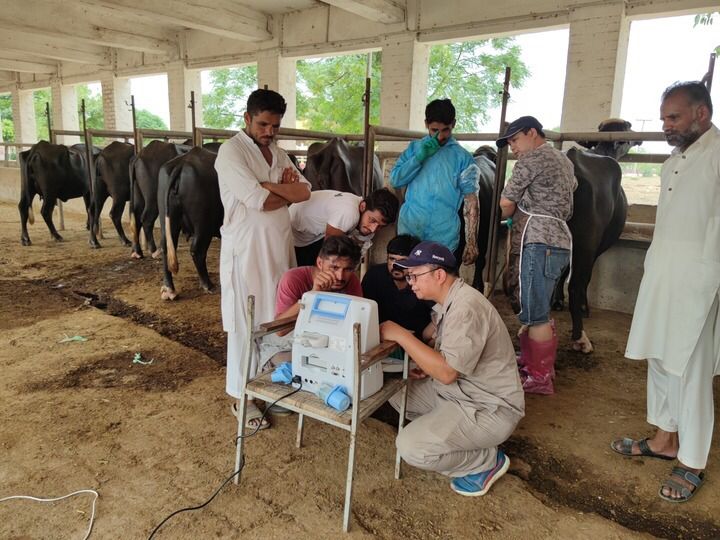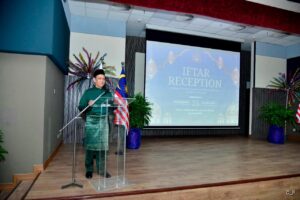China, Pakistan enhance buffalo research to boost dairy industry

China,Pakistan enhance buffalo research to boost dairy industry.
Nanning, The Gulf Observer: In the aseptic and automatic production workshop of Royal Group Co. Ltd., a Chinese giant dairy company headquartered in Nanning, capital of south China’s Guangxi Zhuang Autonomous Region, thousands of different kinds of dairy products made from buffalo milk roll out the production line.
Thanks to the cooperation between China and Pakistan in the field of buffalo breed research, Chinese consumers are expected to taste these buffalo milk and its dairy products added with “Pakistani nutrient elements” in the near future, according to the Royal Group,
“Buffalo milk has high nutritional value and good market prospect, sales of our products has been increasing in recent years,” said Teng Cuijin, vice president of Royal Group, adding that in 2010, buffalo milk products only accounted for 20 percent of the group’s total production volume, but now it has been raised to nearly 50 percent.
With the market demands surges, although the group has established 28 standardized buffalo breeding bases across the country, supply of raw buffalo milk still insufficient for the company,Tang added.
To enlarge the milk source and meet the demands, the group decided to cooperation with Pakistani counterparts, through its subsidiary company Royal Cell Biotechnology (Guangxi) Ltd., a cooperative project named Royal Cell’s China-Pakistan Epidemic Free Pasture and Breeding Project was inaugurated in Punjab province.
“The annual milk production of one Pakistani buffalo can reach 3 tonnes, which is three times that of local variety in Guangxi,” Tang said. “Our milk production has been improved via cross-breeding of imported frozen semen with local buffalo, but this process need more time.”
Now Royal Cell has reached a joint venture agreement with Pakistan’s JW SEZ Group to invest 100 million U.S. dollars to boost local buffalo industry. As a result, the first buffalo embryo production and research laboratory has been built and run into operation in the city of Raschel, capital of Punjab Province.
“Allowing the import of embryos is a mutually beneficial policy, because our Pakistani counterparts have agreed to work with us to research and explore the genetic advantages of Nili Ravi buffalo,” said Qin Junjie, director of overseas business department of Royal Cell.
The laboratory built in Raschel committed to develops high-yield Nili Ravi buffalo embryos, and a dairy farm in Pakistan that can accommodate 5,000 buffaloes is built to greatly improving both Pakistan and China’s buffalo breeds and milk production, Qin added.
According to Qin, bedsides buffalo breeding, the cooperation between the two parties also include developing milk and meat products industries, building a number of modern large-scale buffalo prairies, and jointly extend the market of Pakistan, China, ASEAN countries and the Middle East.
The two parties are expected to launch the construction of the first jointly invested buffalo prairie in Oct. this year, once the construction is completed and put into operation in June next year, nearly 300 employees will be recruited in Pakistan.


